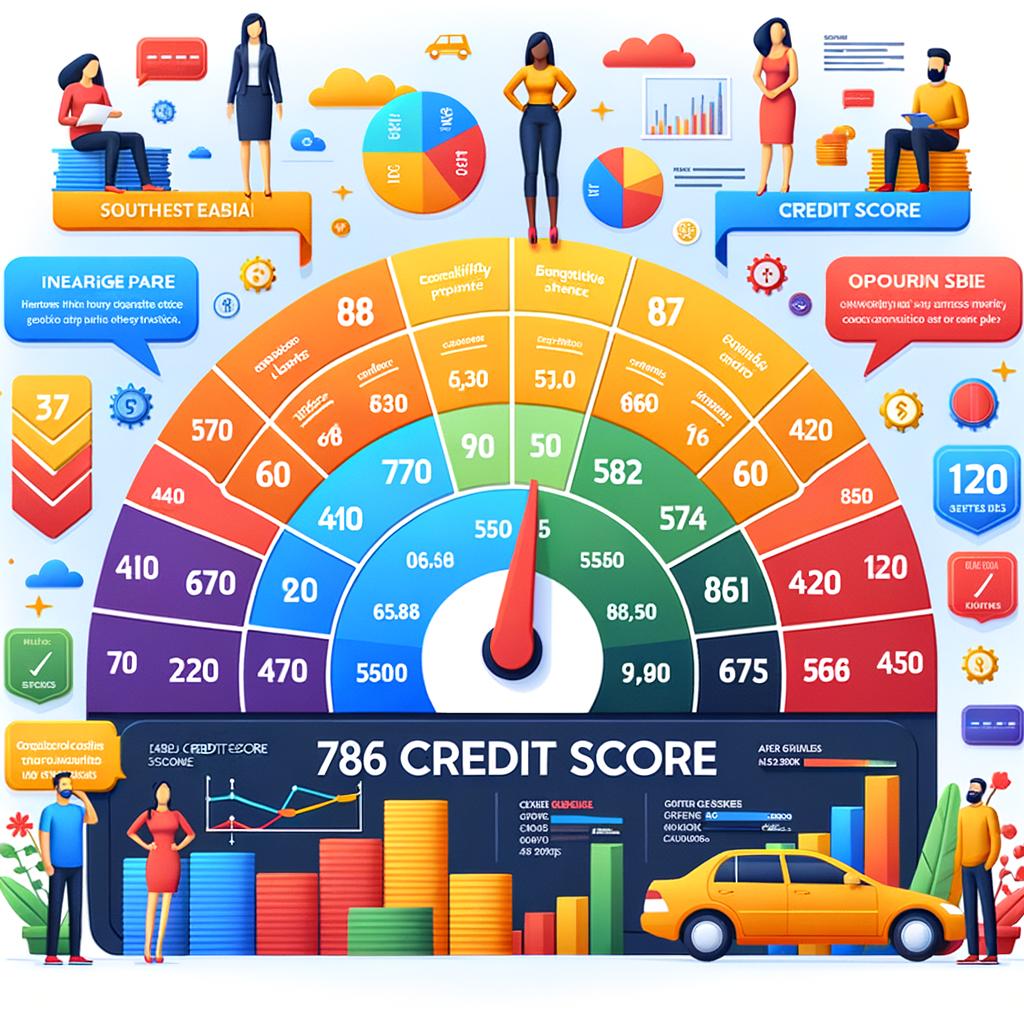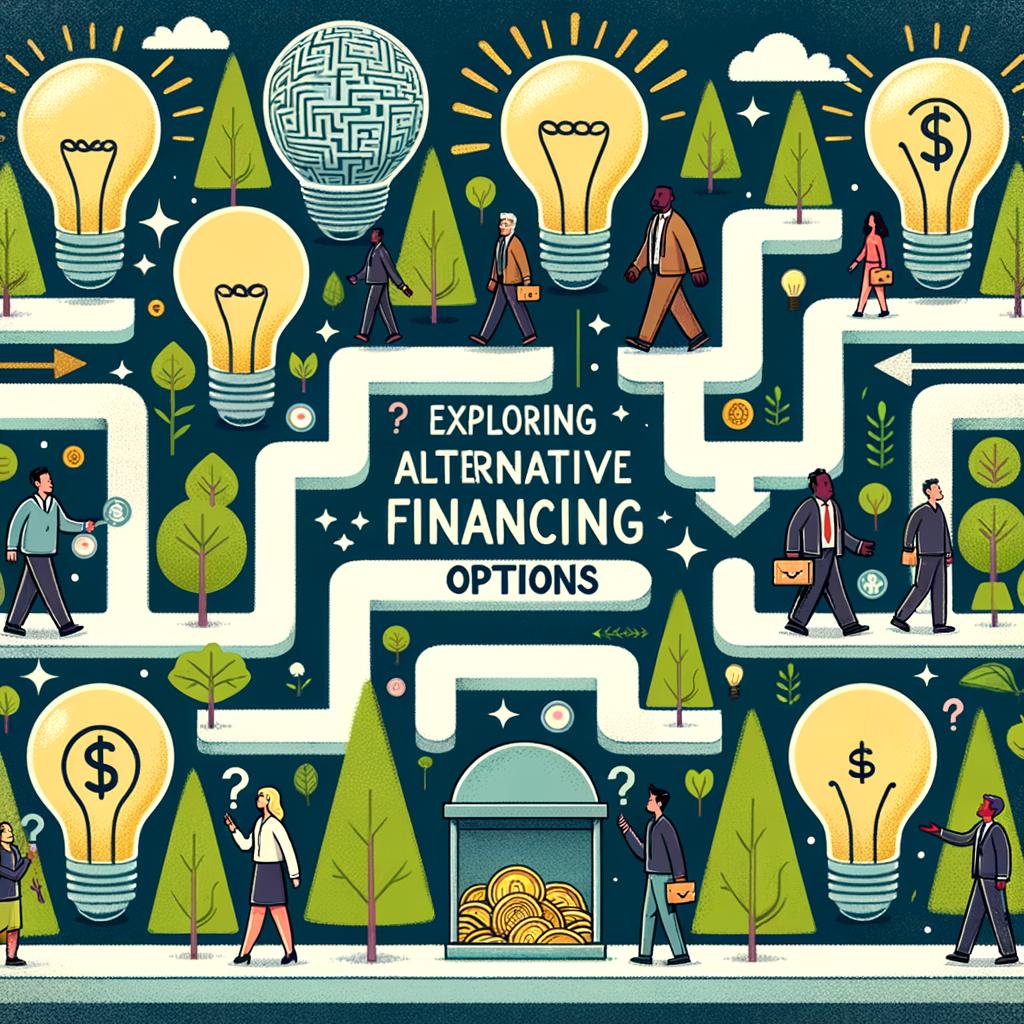Imagine standing at the edge of a bustling real estate market, heart pounding with the excitement of possibility. The dream of homeownership is within reach, but there’s one looming shadow casting doubt: your credit score. The universal challenge of navigating home purchases with less-than-ideal credit can seem like a daunting mountain to climb. Yet, with determination and a well-crafted plan, that dream home can still become a reality. In this guide, we’ll journey through the innovative strategies and practical steps that will empower you to buy a house, even when your credit score is less than perfect. Transform your anxieties into actionable steps and discover that your dream home isn’t just a wistful fantasy, but an achievable milestone.
Table of Contents
- Understanding Your Credit Score and Its Impact
- Exploring Alternative Financing Options
- Leveraging Government Programs and Assistance
- Building a Stronger Case for Mortgage Approval
- Q&A
- The Way Forward

Understanding Your Credit Score and Its Impact
Your credit score is more than a mere number; it symbolizes your financial health and trustworthiness. Lenders scrutinize this figure meticulously to predict the likelihood of your loan repayment. A low score signals risk, which might make buying a house appear daunting.
Primarily, credit scores range from 300 to 850. Scores in the range of 700 and above typically reflect good to excellent credit, while scores between 300 to 579 signify poor credit. This distinction outlines your borrowing opportunities and sets the interest rates you’ll encounter. A poor credit score demands strategic planning to navigate through housing loans.
- Payment History: Accounts for 35% of your score.
- Amounts Owed: Makes up 30% of your score.
- Length of Credit History: Contributes 15% to your score.
- Credit Mix: Comprises 10% of the total score.
- New Credit: Influences 10% of your score.
While these components might appear overwhelming, understanding them can empower you to cultivate better credit habits. Ensuring punctual bill payment and reducing outstanding debts are fundamental steps towards enhancing your credit score. However, even with a lower score, finding appropriate loan solutions is possible.
Here’s a brief comparison of how your credit score can affect your mortgage options:
| Credit Score Range | Interest Rate | Loan Approval Odds |
|---|---|---|
| 740-850 | Lower | High |
| 670-739 | Moderate | Good |
| 580-669 | Higher | Fair |
| 300-579 | Highest | Poor |
Depending on where your score lies within these ranges, you can assess potential loan terms. Traditional mortgage lenders generally require a higher credit score, but alternative options such as FHA loans or subprime mortgages might be accessible to those with less favorable credit scores. FHA loans, for example, often accept scores as low as 580.
Moreover, it is crucial to thoroughly compare and negotiate terms with various lenders. Shopping around can unearth more favorable deals, even if your credit score isn’t stellar. Consider consulting with a mortgage broker who has comprehensive knowledge of different lending products available to buyers with poor credit.
Being transparent about your financial situation with your lender can prove beneficial. Demonstrating an understanding of your credit score and willingness to take corrective measures might inspire confidence, improving your loan approval chances. Maintaining open communication reflects integrity and commitment to fiscal responsibility.
Ultimately, understanding the intricacies of your credit score helps in anticipating challenges and exploring viable routes towards homeownership. Every step towards improving your score indirectly paves the way to achieving the dream of owning a home, even if it initially seems unattainable.

Exploring Alternative Financing Options
When traditional financing options seem out of reach, several alternative methods exist that can help you achieve the dream of homeownership, even with less-than-perfect credit. Below, we delve into some of these lesser-known avenues:
FHA Loans
One of the most popular alternatives is an FHA loan (Federal Housing Administration). These loans are designed for people with lower credit scores and require a smaller down payment. Typically, a score as low as 580 can qualify you for a down payment of just 3.5%. Even with a score between 500-579, you could be eligible with a 10% down payment.
Rent-to-Own Agreements
This option allows you to rent a home with the intention of buying it after an agreed period. Part of your rent is applied toward the future purchase. This route offers flexibility and a chance to improve your credit over time. Typically, these agreements include:
- An initial deposit or option fee
- A higher-than-market rent
- A lease duration (commonly 1-3 years)
- Purchase price agreed upon upfront
VA Loans
If you’re a veteran, active-duty service member, or part of the National Guard, VA loans (Veteran Affairs) might be a great alternative. These loans often come with competitive interest rates and do not require a down payment or private mortgage insurance (PMI). Plus, there is no minimum credit score, which makes it easier for those with bad credit to qualify.
Owner Financing
Sometimes, the property owner might be willing to finance the purchase directly. In this scenario, you’ll pay the seller in installments rather than securing a mortgage from a bank. This could lead to more flexible terms and quicker negotiations. Typical features might include:
- Negotiable interest rates
- Less stringent credit requirements
- Flexible down payments
USDA Loans
For those looking to purchase in rural areas, USDA loans (United States Department of Agriculture) can be an excellent option. These loans require no down payment and typically have lower interest rates. They are especially beneficial if you’re looking for homes in eligible rural communities and have limited financial resources.
Credit Union Loans
Unlike traditional banks, credit unions might offer more flexible lending criteria and lower interest rates. Here, being a member of the credit union is crucial, as these financial institutions are owned by their members. Benefits often include:
- Personalized service
- Lower fees
- Potential for better terms
Private Lenders
Private lenders or hard money lenders are another alternative, although they typically come with higher interest rates and shorter loan terms. They focus primarily on the property’s value rather than your credit score. This means you can secure a loan more quickly, but the overall cost might be higher.
Local Government Programs
Local or state government programs may offer grants or loans specifically designed for first-time buyers or those with low income and poor credit. These programs often come with beneficial terms and conditions, making homeownership more accessible.
Comparison of Alternative Financing Options
| Option | Down Payment | Credit Score |
|---|---|---|
| FHA Loan | 3.5% - 10% | 500+ |
| VA Loan | 0% | None |
| USDA Loan | 0% | – |
| Rent-to-Own | Low initial fee | Varies |
| Owner Financing | Negotiable | No strict limits |

Leveraging Government Programs and Assistance
Securing a home might seem daunting if your credit score is not impressive. Fortunately, there are numerous government programs and assistance strategies designed to aid individuals in your situation. By tapping into these resources, you can take a definitive step towards owning a house even with less-than-stellar credit.
The Federal Housing Administration (FHA) loans are a superb option. The FHA provides mortgage insurance on loans made by FHA-approved lenders, which helps lower the risk for the lender and makes it easier for borrowers with bad credit to qualify. Typically, you might be able to secure an FHA loan with a credit score as low as 580.
- Low down payment options (as low as 3.5%)
- Flexible income and debt requirements
- Opportunity to refinance existing mortgages
Another excellent program is the Veterans Affairs (VA) Loans. If you are a veteran, active-duty service member, or a surviving spouse, you might be eligible for a VA loan. These loans are provided by private lenders but backed by the Department of Veterans Affairs, offering several benefits:
- Zero down payment options
- No private mortgage insurance requirement
- Lower interest rates compared to conventional loans
The USDA Rural Development Loans are yet another option. These loans are aimed at helping low to moderate-income families in rural areas. Surprisingly, this program covers a reasonably broad geographical area, including some suburban regions. This program offers:
- Zero down payment requirement
- Lower mortgage insurance rates
- Subsidized interest rates
State and local Housing Finance Agencies (HFAs) also provide valuable assistance. Each state’s HFA offers different programs tailored to first-time homebuyers or buyers with low credit scores. You can typically find:
- Down payment assistance grants or loans
- Tax credits for mortgage interest
- Educational resources and homebuyer counseling
Utilize the Good Neighbor Next Door (GNND) program if you are a law enforcement officer, teacher, firefighter, or emergency medical technician. This program offers a remarkable 50% discount on HUD homes in revitalization areas. Although these homes might need some work, the substantial discount can help compensate for credit challenges.
An essential aspect of taking advantage of these programs is thoroughly researching and understanding your eligibility. Here’s a quick comparison:
| Program | Credit Score Requirement | Down Payment | Special Conditions |
|---|---|---|---|
| FHA Loans | 580+ | 3.5% | Insurance required |
| VA Loans | No minimum | 0% | For veterans and active-duty service members |
| USDA Loans | 640+ | 0% | Rural areas |
These government programs and aid can significantly relieve the pressure of buying a house with bad credit. Take the time to explore and make full use of them to turn your dream of homeownership into a reality.

Building a Stronger Case for Mortgage Approval
Securing a mortgage with bad credit might feel like an uphill battle, but constructing a solid application can increase your chances significantly. The initial step involves understanding your financial landscape and making the necessary adjustments to present yourself as a credible borrower.
Begin by reviewing your credit report meticulously. Identify errors or inaccuracies and dispute them promptly. Even minor corrections can have a noticeable impact on your credit score. Additionally, consider paying off small debts to improve your credit utilization ratio, which is a critical component of your credit score.
| Step | Action |
| 1 | Review Credit Report |
| 2 | Dispute Errors |
| 3 | Pay Off Small Debts |
Next, work on increasing your down payment amount. Lenders are more inclined to approve a mortgage if you can make a substantial down payment. This reduces their risk and demonstrates your commitment to the investment. Aim for a down payment of at least 20% to avoid private mortgage insurance (PMI) and to show financial stability.
Examine alternative loan types such as FHA loans, which are tailored for individuals with lower credit scores. These government-backed loans have more lenient credit requirements but usually require thorough documentation and proof of consistent income. Similarly, consider VA loans if you are a veteran, or USDA loans if you are purchasing property in rural areas, both of which may have more forgiving credit standards.
- FHA Loans: Lenient credit requirements, needs documentation
- VA Loans: Specifically for veterans, favorable terms
- USDA Loans: For rural properties, flexible credit standards
Establishing a co-signer can also strengthen your mortgage application. If you have a friend or family member with good credit willing to co-sign, it reduces the lender’s risk and increases your chances of approval. Ensure that the co-signer understands their responsibilities and how it impacts their credit.
Prepare a comprehensive letter of explanation to address any red flags in your credit history. This letter allows you to provide context for your financial struggles and demonstrate any steps you’ve taken to improve your situation. Being transparent and proactive can enhance your credibility in the eyes of the lender.
| Tip | Description |
| Down Payment | Aim for 20% to avoid PMI |
| Co-signer | Reduces lender’s risk |
| Letter of Explanation | Provide context for credit issues |
Saving diligently not only assists with your down payment but also boosts your cash reserves, showcasing your ability to manage finances effectively. Lenders have a positive view of applicants who maintain healthy savings as it signals responsible financial behavior.
consider contacting a mortgage broker who specializes in working with clients with subpar credit. They can guide you to lenders who are more flexible and offer advice on how to tailor your application. A broker’s expertise can be invaluable in navigating the complexities of securing a mortgage with less-than-ideal credit.
Q&A
Q&A: Navigating the Path to Homeownership with Bad Credit
Q: What are the first steps to take when considering buying a house with bad credit?
A: Start by assessing your financial situation comprehensively. Obtain copies of your credit reports from the three major credit bureaus (Equifax, Experian, and TransUnion) and review them for any inaccuracies. Dispute errors that may be dragging down your score. Also, calculate your debt-to-income ratio (DTI) to understand your borrowing capacity. Preparing a budget and saving for a larger down payment can also help strengthen your application.
Q: Are there specific loan options available for individuals with bad credit?
A: Yes, there are several loan programs geared towards individuals with lower credit scores. FHA loans, backed by the Federal Housing Administration, are a popular choice as they tend to have more lenient credit requirements. VA loans, guaranteed by the Department of Veterans Affairs, are available to veterans and active service members with low credit scores. USDA loans could be another option if you are looking to buy in rural areas.
Q: How can one improve their credit score before applying for a mortgage?
A: Improving your credit score involves a multifaceted approach. Start by paying all your bills on time, as payment history is a significant factor in your credit score. Reduce outstanding debt, focusing first on high-interest debts. Avoid applying for new credit lines, as multiple hard inquiries can negatively impact your score. Additionally, consider a secured credit card or a credit-building loan to demonstrate responsible borrowing behavior.
Q: Is it possible to get a mortgage co-signer to increase chances of approval?
A: Yes, having a co-signer with good credit can improve your chances of getting approved for a mortgage. The co-signer’s creditworthiness can alleviate some of the lender’s concerns regarding your ability to repay the loan. However, this is a significant responsibility for the co-signer, as they will be equally liable for the debt.
Q: What role does a larger down payment play in buying a house with bad credit?
A: A larger down payment can significantly enhance your mortgage application. It reduces the lender’s risk and demonstrates your ability to save and manage finances effectively. Additionally, a substantial down payment can lead to more favorable loan terms and potentially lower interest rates, making homeownership more affordable in the long run.
Q: Can working with a credit counseling service be beneficial?
A: Absolutely. Credit counseling services can offer valuable advice on managing debt, improving credit, and preparing for homeownership. They can help you create a realistic budget and provide strategies to boost your credit score over time. However, ensure you select a reputable nonprofit counseling agency to avoid any scams or exorbitant fees.
Q: What should one be aware of when seeking subprime mortgage lenders?
A: Subprime mortgage lenders specialize in loans for individuals with less-than-perfect credit. While they can be a viable option, it’s essential to be cautious. These loans often come with higher interest rates and less favorable terms. Compare multiple offers, read the fine print, and consider consulting a financial advisor before making a decision.
Q: How can ongoing financial responsibility impact future refinancing opportunities?
A: Maintaining financial responsibility post-purchase is crucial. Making timely mortgage payments can improve your credit score over time, which could open up refinancing opportunities with better terms and lower interest rates. Refinancing allows you to benefit from improved credit by securing a more favorable loan, reducing monthly payments, or shortening the loan term.
Q: What are some potential risks to be aware of when buying a house with bad credit?
A: Buying a house with bad credit may result in higher interest rates and larger monthly mortgage payments. There’s also the risk of overextending yourself financially, which could lead to difficulties in meeting mortgage obligations. It’s essential to have a clear understanding of your financial limits and to avoid properties that stretch your budget too thin.
With proper preparation and a strategic approach, buying a house with bad credit is indeed possible. By understanding available options, improving your credit score, and making informed decisions, you can confidently step onto the path to homeownership.
The Way Forward
Navigating the rocky terrain of homeownership with less-than-perfect credit might feel like an uphill battle, but with strategic planning and steadfast determination, that dream house is not as far-fetched as it seems. Remember, every successful purchase begins with arming yourself with the right knowledge and understanding your financial stance in its entirety. Strike forward with the confidence that, despite the shadows of bad credit, your aspirations can find their silver lining in the world of real estate. So take a breath, map out your journey, and step into your future home—because every chapter in the story of your life is worth the effort, and this endeavor is no exception. Enjoy the path to your new door, and let every small victory pave the way towards your ultimate goal.
